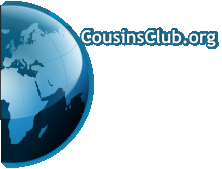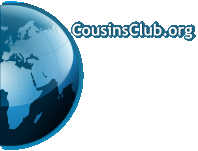
Artificial intelligence applications in genealogy
Artificial intelligence comes to the real world.


© Copyright Lexabean, LLC
What is Artificial Intelligence?
Artificial Intelligence (AI) has been around for over 30 years, but has only recently started to have widespread commercial applications. Not sure where this fits in? Think Amazons Alexa or Google Translate. Applications like these grew out of research in Academia and became commercially viable products with the dramatic increases in technology over the past 10 years. In the world of Genealogy, AI can be used for: • Natural Language Processing: This can range from translations to searching for names of towns or people with different spellings • Machine Learning: Access to the Internet allows computer programs to conduct online searches for you saving your hours of research. Examples of this being applied include the automatic generation of very large family trees with the computer program learning on its own about family relationships. • Computer Vision: Recognizing what is in a picture. Is it of a grave? What does the text say? Is it of people? Who are they? This technology is still in its infancy, but is maturing quite a bit. This started with technology that recognizes text in scanned in documents (OCR - Optical Character Recognition) and has evolved into uses for driver less cars (i.e. reading road signs). There are quite a few benefits to this technology. Computers can search more data faster than humans. Your ancestors may come from countries where you don’t speak the language. When they immigrated to the country you are now living in, their immigration records may have alternate spellings of their names or the towns they came from. Natural language processing is already being used in a number of popular Genealogy products. Ancestry.com and Jewishgen.org already have functionality to help you search for relatives and towns that will search name variations for you. Google.com and Ancestry.com both also offer translations of text from one language to another. GenSmarts.com uses machine learning to search the Internet for information for your family tree. Look for advances in technology to continue to bring advances Artificial Intelligence to commercially available Genealogy products. The advent of the Internet in the 1990s led to significant advances in technology and products. Research and development being done now for driver less cars will lead to a similar boom for AI. These advances will carry over into other industries, including Genealogy introducing new opportunities to learn more about your family. One such potential growth area is with DNA testing. While this has grown quite a bit in recent years, look for this to grow even more with advances in the underlying data and AI applications take advantage of it.








Try Map My Cousins to see how
Artificial Intelligence can be used to
learn about your family history.

Map My Cousins

Artificial intelligence applications in
genealogy
Artificial intelligence comes to the real world.

What is Artificial Intelligence?
Artificial Intelligence (AI) has been around for over 30 years, but has only recently started to have widespread commercial applications. Not sure where this fits in? Think Amazons Alexa or Google Translate. Applications like these grew out of research in Academia and became commercially viable products with the dramatic increases in technology over the past 10 years. In the world of Genealogy, AI can be used for: • Natural Language Processing: This can range from translations to searching for names of towns or people with different spellings • Machine Learning: Access to the Internet allows computer programs to conduct online searches for you saving your hours of research. Examples of this being applied include the automatic generation of very large family trees with the computer program learning on its own about family relationships. • Computer Vision: Recognizing what is in a picture. Is it of a grave? What does the text say? Is it of people? Who are they? This technology is still in its infancy, but is maturing quite a bit. This started with technology that recognizes text in scanned in documents (OCR - Optical Character Recognition) and has evolved into uses for driver less cars (i.e. reading road signs). There are quite a few benefits to this technology. Computers can search more data faster than humans. Your ancestors may come from countries where you don’t speak the language. When they immigrated to the country you are now living in, their immigration records may have alternate spellings of their names or the towns they came from. Natural language processing is already being used in a number of popular Genealogy products. Ancestry.com and Jewishgen.org already have functionality to help you search for relatives and towns that will search name variations for you. Google.com and Ancestry.com both also offer translations of text from one language to another. GenSmarts.com uses machine learning to search the Internet for information for your family tree. Look for advances in technology to continue to bring advances Artificial Intelligence to commercially available Genealogy products. The advent of the Internet in the 1990s led to significant advances in technology and products. Research and development being done now for driver less cars will lead to a similar boom for AI. These advances will carry over into other industries, including Genealogy introducing new opportunities to learn more about your family. One such potential growth area is with DNA testing. While this has grown quite a bit in recent years, look for this to grow even more with advances in the underlying data and AI applications take advantage of it.
© Copyright Lexabean, LLC




Try Map My Cousins to see how
Artificial Intelligence can be used to
learn about your family history.

Map My Cousins




























